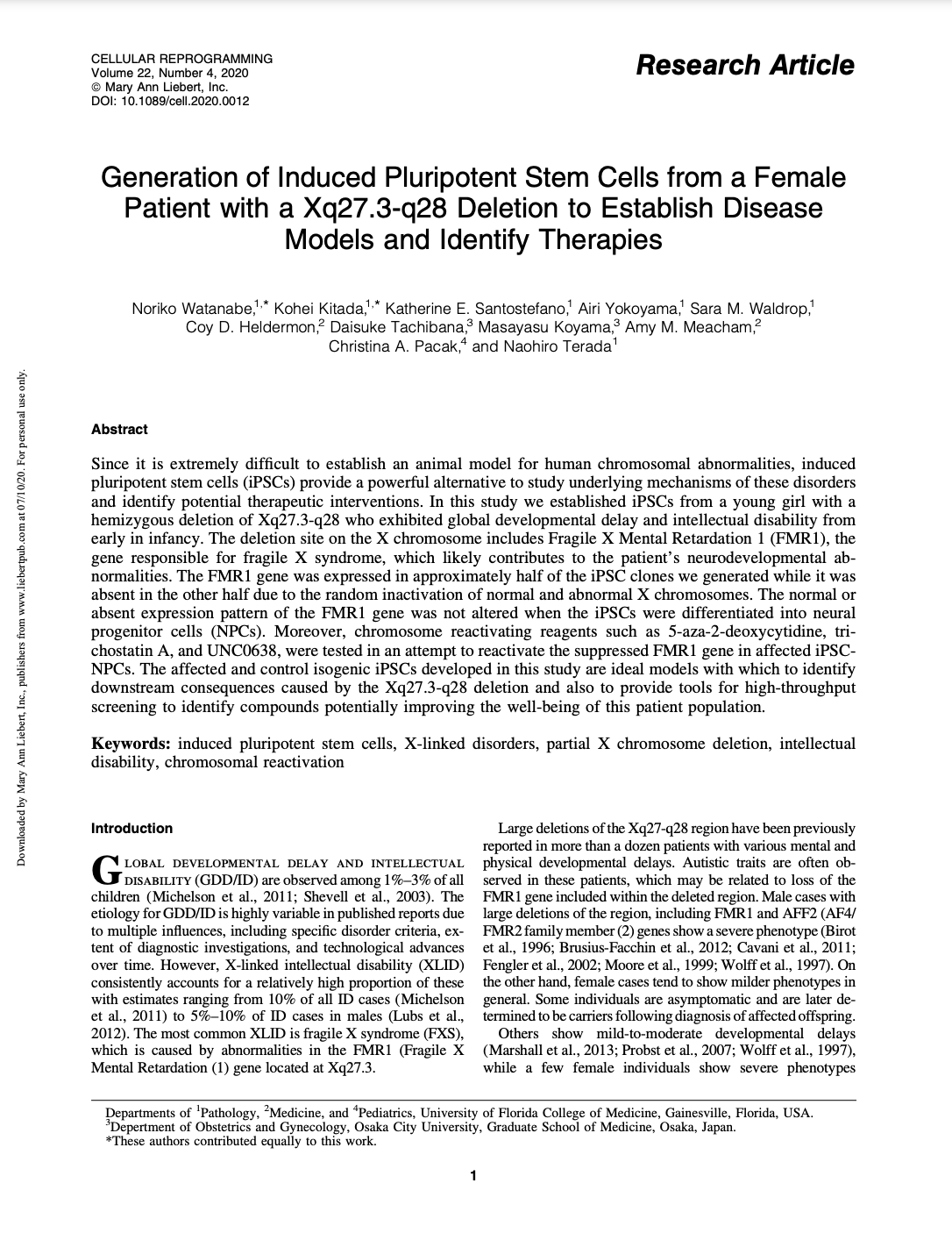RESEARCH
University of Florida scientists are teaming up to examine the effects of gene deletion on biochemical pathways and attempt to rescue brain circuitry with targeted therapies.
Xtraordinary Joy Scientific Advisors

Leylah Drusbosky, Ph.D
Leylah Drusbosky, Ph.D., is a Medical Science Liaison at Guardant Health, a company that utilizes blood samples to guide personalized treatments in advanced cancer patients. She received her Ph.D. in molecular biology from the University of Florida and has expertise in next-generation sequencing, precision medicine, and translational research.

Kim Hawkins, Ph.D.
Kim Hawkins, Ph.D., is the Lead of Global Reagent Management for all vaccine R&D labs in Sanofi Pasteur. She received her Ph.D. in neuroscience at the University of Florida. She has experience investigating new treatment strategies for ischemic strokes, studying epigenetics of learning and memory, and neurogenetic viral therapy.

Coy Heldermon, MD, Ph.D.
Coy Heldermon, MD, Ph.D., is an associate professor of medicine, board-certified medical oncologist with expertise in the treatment of breast cancer at the University of Florida. He is a member of the American Society of Hematology and the American Society of Clinical Oncology. His research expertise is in the use of gene replacement and stem cell therapies for the treatment of inherited disorders such as lysosomal storage diseases. He also studies the spread of stem cells from maternal or malignant sources using mouse models. Heldermon also serves as the faculty advisor for the Xtraordinary Joy Student Chapter at UF.

Fatima Shaerzadeh, Ph.D.
Fatima Shaerzadeh, Ph.D. is a principal scientist at Lacerate Therapeutics, a company that is dedicated to the discovery and development of AAV-based gene therapies. She received her Ph.D. in Neuroscience in iran and joined Khoshbouei's lab as a post-doc fellow. Her research is in nuerobiology and neurodegenerative diseases.
Research Publications
Xtraordinary Joy is proud to announce groundbreaking research publications.
Dr. Tim Garrett,
Associate Professor at the University of Florida
Latest Publication: Metabolomics and Lipidomics of Xq27.3-28 Neural Progenitors
Understanding X-Chromosome deletion disorder using metabolomics and lipidomics. (Zoom discussion)


Naohiro Terada, MD, Ph.D.
Naohiro Terada, MD, Ph.D., is professor of experimental pathology and director of the Center for Cellular Reprogramming at the University of Florida. He has published hundreds of research articles and served with numerous granting and publication agencies.
Additional Publications
Below are additional publications including further research regarding Xq27-q28 deletion.
Deletion Xq27.3q28 in female patient with global developmental delays and skewed X-inactivation



